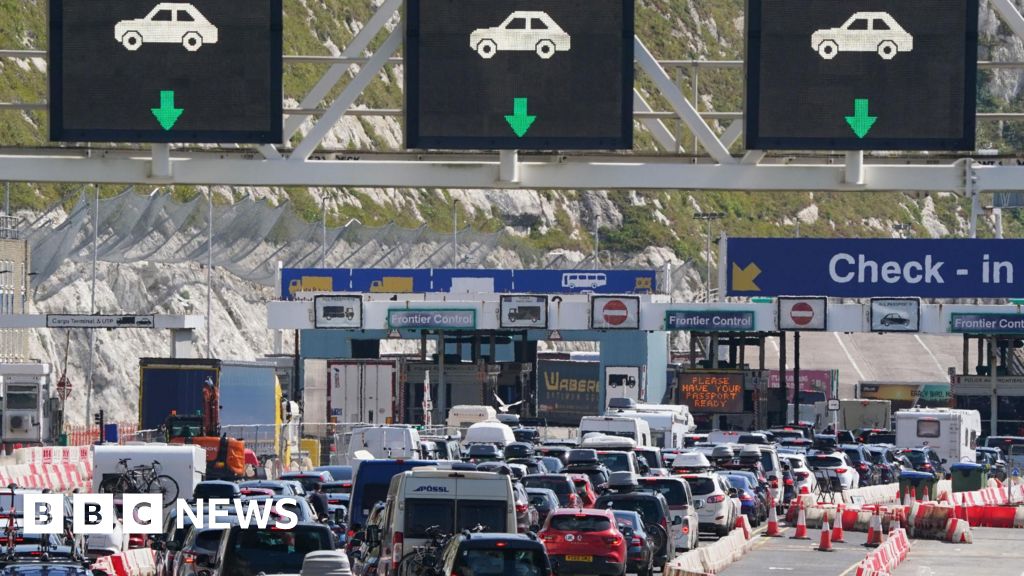The government is to provide £10.5m worth of funding to prepare for new EU border checks this autumn.
The Port of Dover, Eurotunnel at Folkestone and Eurostar at St Pancras will receive financial aid to help reduce queues for travellers.
From the autumn, travellers from the UK and other non-EU countries will have to go through a new digital border system called the Entry/Exit System (EES), which is being brought in by the EU.
This will involve having your photograph and fingerprints taken.
The government money will be spent on providing ports with the necessary technology to complete these checks.
“Nobody wants to see excessive queues at our ports, which is why we’re providing this funding to ensure our borders are as prepared as possible for the upcoming change – despite EES being an EU initiative,” said Future of Roads Minister Lilian Greenwood.
“Since coming into government, we have been reviewing plans and closely supporting ports to make sure they have the right processes in place so that EES registration can be smooth and queue times kept to a minimum.”
Emma Ward, chief operations officer for the Port of Dover, said: “We are doing all that we can to be ready with the facilities that will be used by French border officials operating the new system whilst we continue to work with the UK government to deliver more seamless travel between the UK and EU.”
The EES was originally meant to begin in 2022 but it has faced many setbacks.
It had previously been rescheduled for May 2023, then the end of 2023, and now is expected to come into force in November 2024.
Getlink, which manages Eurotunnel, started work two years ago to adapt to EES changes.
“The focus has always been on customer satisfaction, delivering the most competitive crossing time and experience at the border for non-EU travellers,” Yann Leriche, chief executive of Getlink, said.
He said the Eurotunnel share of the funding would be spent on training staff, technology, and adding more kiosks if needed.

